Safari in Kenya: Things to Know Before Going
A safari in Kenya offers an unparalleled experience for nature enthusiasts and wildlife lovers. Imagine yourself overlooking the expansive plains of the Maasai Mara, witnessing the mesmerizing wildebeest migration and majestic lions soaking up the radiant sunlight. Before setting off on this remarkable journey, it’s important to be aware of some key tips that will enhance your safari experience.
This guide covers all aspects of your safari adventure, from what to pack to local customs, guaranteeing you’re prepared. We provide advice on visas and health requirements, insights into cultural etiquette and safety precautions, and recommendations for the best time to visit Kenya. We also share budget-friendly options and tips for exploring Kenya’s wildlife and natural beauty without overspending.
Let’s get down to it!
Visa Requirements and Travel Documents for your Safari in Kenya
Before embarking on a safari in Kenya, it is important to carefully plan your trip and make sure you have all the necessary travel documents and visas. Here is what you need to know:
Visa Requirements
Before visiting Kenya, it is important to obtain a visa. The good news is that the process is quite simple. For most travelers, a tourist visa can be obtained upon arrival at the airport or border crossing, and it is valid for 90 days. However, it is advisable to check the current visa regulations and requirements before your trip, as they may change.
If you prefer to apply for a visa beforehand, you can do so through the online eVisa system or at the nearest Kenyan embassy or consulate. The eVisa application process is quick and convenient, allowing you to receive your visa via email within a few days.
Passport and Travel Documents
Make sure that your passport remains valid for at least six months beyond your planned departure date. Additionally, it is crucial to have at least two empty pages in your passport for entry and exit stamps.
Vaccinations and Health Requirements
Located in a region with prevalent diseases, Kenya advises visitors to take necessary precautions. It is advisable to visit a travel clinic or consult your healthcare provider 4-6 weeks before your trip to ensure any required vaccinations or medications are taken care of.
The yellow fever vaccine is the most common one needed to enter Kenya. Remember, if you’re coming from or passing through a country with yellow fever, you must have a valid yellow fever vaccination certificate.
In many parts of Kenya, malaria is a common disease. To stay safe, it’s recommended to take precautions against it. Consult your healthcare provider for suitable antimalarial medications and other preventive measures.
Other Considerations
Comprehensive travel insurance is important. It should cover medical expenses, trip cancellations, and unexpected situations. In rural areas, there may be limited medical facilities, so having adequate coverage is crucial.
Furthermore, it is advisable to inform your embassy or consulate about your trip upon your arrival. This way, they can extend assistance if any emergencies or unexpected incidents occur.
Wildlife Encounters and Safety Tips
- Wildlife should be respected. You can admire animals from a safe distance, but it’s important to avoid getting too close or trying to touch them. It’s also crucial to respect their natural behavior and not feed them. Remember, wild animals can be unpredictable.
- It is important to listen to your guide during the safari. They are knowledgeable about animal behavior and can give you instructions to keep you safe and protect the wildlife.
For your safety and a better viewing experience, please stay inside the safari vehicle unless your guide instructs otherwise. Remaining inside the vehicle provides protection and ensures your safety.
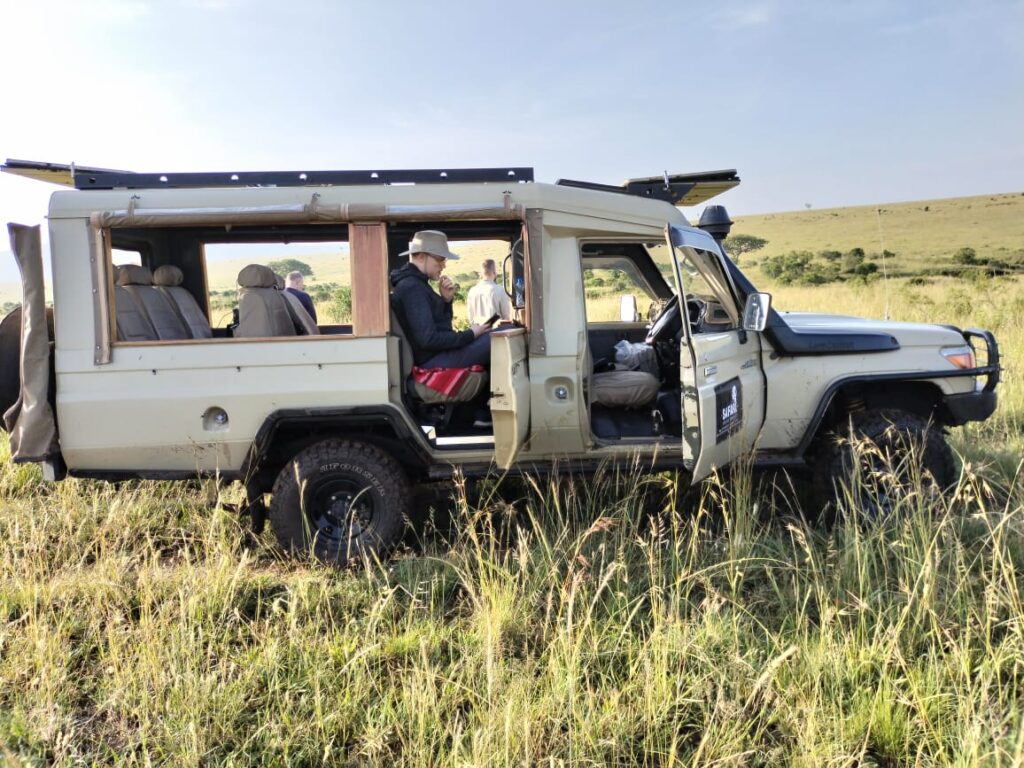
To ensure everyone’s safety, it is important to avoid sudden movements and loud noises around animals. These can startle them and may cause them to react defensively or aggressively. Keeping noise levels to a minimum is advised.
Make sure to pack a fully-equipped first aid kit. It should include important items like bandages, antiseptic cream, pain relievers, and any prescription medications you might need.
Travel Safety and General Tips
Stay hydrated: Drink plenty of water, especially in hot and dry environments. Carry a reusable water bottle and ensure the water is safe to drink. Use bottled or filtered water if necessary.
When traveling, it’s important to respect the customs, traditions, and culture of the local area. Take note of the local etiquette and dress modestly, especially when interacting with the local community or visiting religious sites.
To ensure your belongings are safe while traveling, it’s important to take a few measures. First, secure your valuables and travel documents. You can use hotel safes or secure lockers if they’re available. Additionally, consider splitting your cash and cards and keeping them in different places. This will provide added security and lessen the risk of losing everything if something unfortunate were to happen.
Keeping your health and safety in mind is vital for a remarkable and pleasant safari adventure in Kenya. When you adhere to these precautions and guidelines, you’ll have the opportunity to fully embrace Kenya’s breathtaking wildlife and natural marvels.
Best Time to Visit for a Safari in Kenya
The country’s wildlife and natural beauty change throughout the year due to different seasons. Here’s a breakdown of the optimal times to experience a safari in Kenya.
Dry Season Safari in Kenya (January to March, July to October)
From January to March, the weather is usually warm and there is little to no rain. These conditions make it perfect for spotting wildlife. It’s an especially exciting time because many animals give birth during this period, so you’ll have the chance to see lots of adorable young animals.
From July to October, Kenya becomes an excellent destination for safaris. During this time, the weather is pleasant and dry. It is also the season of the Great Migration in the Masai Mara, where millions of wildebeest and other herbivores move from Tanzania to Kenya in search of better grazing areas. This event provides amazing chances to witness exciting predator-prey interactions.
Advantages of the Dry Season Safari in Kenya:
- Excellent wildlife sightings and opportunities for photography.
- Comfortable temperatures with minimal rain.
- Witness the Great Migration in the Masai Mara.
Disadvantages of the Dry Season:
- Higher tourist numbers, especially during the Great Migration.
- Accommodation and park fees might be more expensive during peak season.
Wet Season Safari in Kenya (April to June, November to December)
During the wet season in Kenya, rain showers transform the landscapes into lush and picturesque paradises. Although some tourists may be deterred by the rain, visiting during this time offers its own unique advantages.
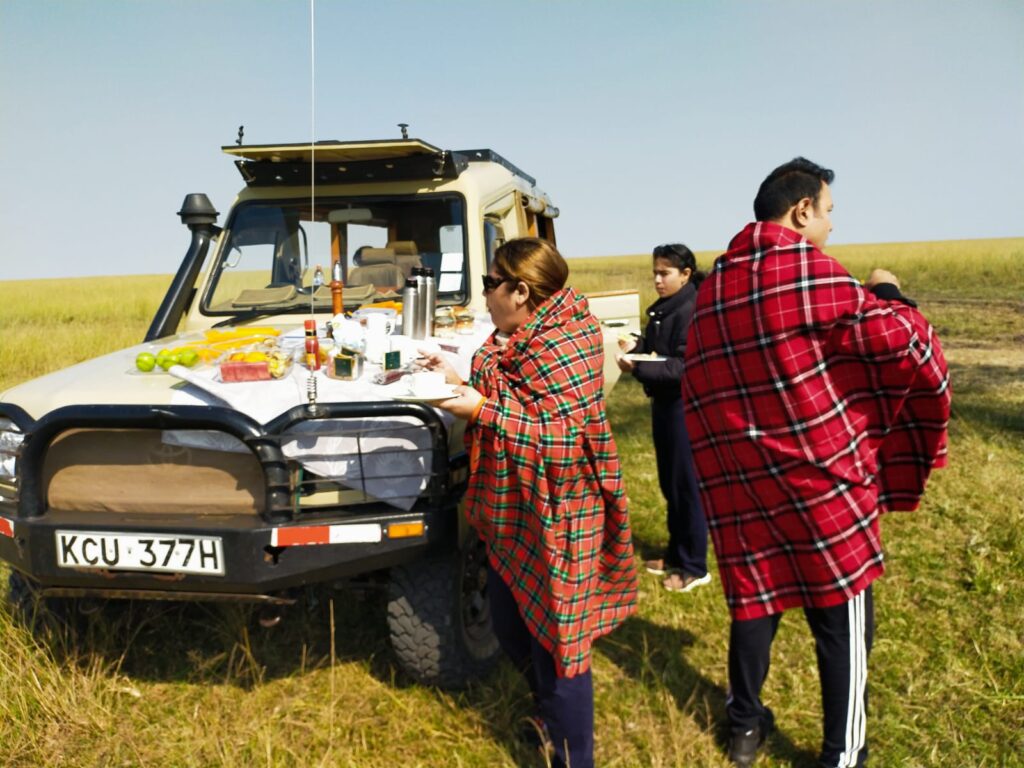
During the months of April to June, the region experiences what is known as the “long rains.” This time of the year is not very popular among tourists. However, if you don’t mind occasional showers, there are some advantages to visiting during this period. You can enjoy lower prices, as well as fewer crowds. Additionally, the surroundings become incredibly lush and green.
In November and December, the “short rains” come, bringing brief periods of rain. This time is called the “shoulder season” and it offers a good balance between affordable prices and chances to see wildlife.
Advantages of the Wet Season Safari in Kenya:
- Fewer tourists and lower prices on accommodations and tours.
- Lush and vibrant landscapes, perfect for photography.
During this time, there is a great opportunity for birdwatching. Migratory birds arrive, creating a wonderful chance to observe them.
Disadvantages of the Wet Season:
- Rainfall can make game drives and outdoor activities challenging.
- Wildlife tends to disperse as water and food become abundant.
Planning Your Safari Itinerary
When planning a safari in Kenya, there are important factors to keep in mind for a memorable experience. Here are some valuable tips to make the most of your adventure:
Research and Choose the Ideal National Parks and Reserves
- Masai Mara National Reserve: Known for its abundant wildlife, especially during the Great Migration, Masai Mara should be on top of your list. Witness the dramatic river crossings and marvel at the diverse flora and fauna.
- Amboseli National Park is renowned for its stunning vistas of Mount Kilimanjaro. This captivating destination provides excellent chances to witness elephants, lions, and various wildlife set against the majestic backdrop of Africa’s tallest mountain.
- Tsavo National Park is a magnificent place. It is divided into two parts: East and West. Tsavo offers beautiful landscapes and a wide variety of wildlife, making it perfect for short visits or long adventures.
- The Samburu National Reserve, situated in the dry northern part of Kenya, is a haven for distinctive animals like the Grevy’s zebra, Somali ostrich, and reticulated giraffe.
- Lake Nakuru National Park is famous for its beautiful lake, known for the pink flamingos that surround it. Beside the flamingos, visitors can also see rhinos, lions, and other wildlife at the park.
Seek Expert Advice from Local Travel Agents
To enhance your safari experience, it’s advantageous to seek the guidance of local travel agents. They possess extensive knowledge about the area and can offer valuable advice to customize your itinerary according to your preferences and budget. In addition, they can recommend unique and lesser-known destinations that provide equally awe-inspiring experiences.
Click Below to Book a Consultation with our Travel Expert.
Factor in Travel Time and Accessibility
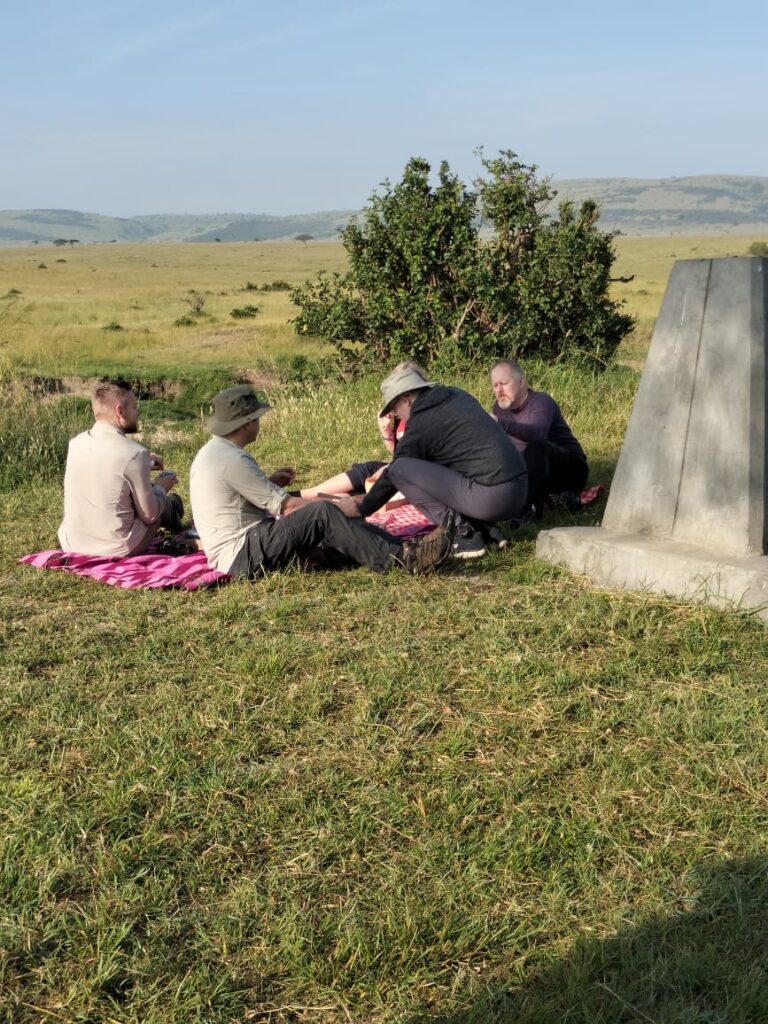
When planning your itinerary, it’s important to take into account the closeness and logistics of each destination.
You can optimize your travel time by including nearby parks or using domestic flights to efficiently reach more remote areas.
Balance Game Drives and Other Activities
Try other activities like guided walks, birdwatching, visiting local communities to learn about their culture, or even going on hot air balloon rides.
These experiences will add more variety to your safari adventure.
Choosing the Right Safari Operator
When planning a safari in Kenya, selecting the appropriate safari operator becomes pivotal in guaranteeing a fulfilling and unforgettable experience. Given the multitude of choices at hand, it is essential to take into account various factors to ensure a well-informed decision. Here are some tips to help you find the right safari operator:
Experience and Expertise
Take into account the company’s longevity and whether they specialize specifically in Kenya or have a broader scope. An operator with deep knowledge of the local wildlife, landscapes, and cultural heritage can truly enrich your safari journey.
Reviews and Recommendations
To assess the reputation of a safari operator, it’s worth checking out online reviews and testimonials from past clients. These can give you valuable insights into the quality of service, guides, and overall experience. Reputable operators typically have a solid presence on travel websites and forums, where you can discover genuine reviews and recommendations.
Ethical Practices
Look for operators that show a dedication to wildlife conservation, community involvement, and responsible tourism. Ethical operators play a significant role in preserving Kenya’s natural beauty and helping local communities thrive by implementing initiatives such as education programs and income-generating projects.
Customization and Flexibility
Seek out operators who are willing to customize your safari experience, taking into consideration your desired accommodation style, activities, and specific wildlife interests. By being flexible and accommodating your needs, these operators can greatly enhance your safari adventure.
Safety and Licenses
To make sure you have a safe safari experience, it’s important to check if the operator has all the required licenses and permits from local authorities. Prioritize safety by asking about their safety protocols, the condition of their vehicles, the expertise of their guides, and if they follow wildlife viewing guidelines.
Packing Essentials for a Safari in Kenya
When preparing for a safari in Kenya, it is crucial to pack carefully to ensure a comfortable and successful trip. Here is a comprehensive packing list to help you get ready:
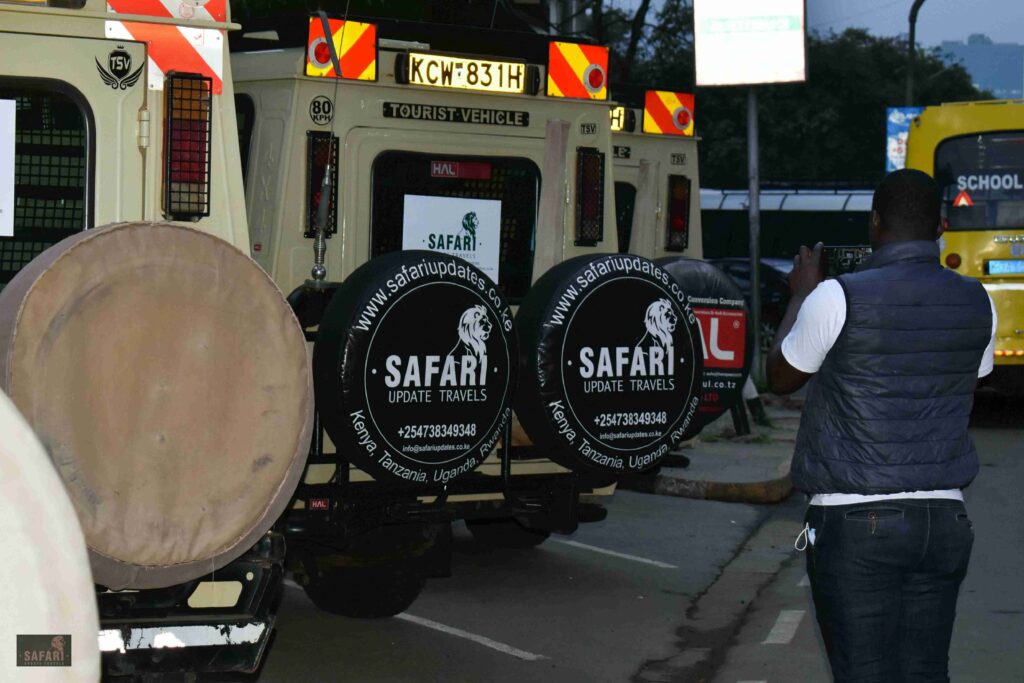
Clothing
- Lightweight, breathable clothing in neutral colors
- Long-sleeved shirts and pants to protect against insects and the sun
- Light rain jacket or poncho for unexpected showers
- Fleece or sweater for chilly mornings and evenings
- A sunhat with a wide brim is perfect for protecting your face from the sun’s rays. You’ll stay cool and shaded while enjoying the outdoors.
- Comfortable closed-toe shoes or boots for walking safaris
- Sandals or flip-flops for relaxing at camp
- Swimsuit for swimming or enjoying beach resorts
Toiletries and Personal Items
- Sunscreen with a high SPF
- Insect repellent with DEET
- Personal medications and a basic first aid kit
- Hand sanitizer and wet wipes
- Toiletries, including biodegradable soap and shampoo
- Travel-sized towel or sarong
- Travel adapter and chargers for electronic devices
Safari Equipment
- Binoculars for wildlife spotting
- Camera with extra batteries and memory cards
- Portable power bank for charging devices on the go
- Lightweight backpack or daypack
- Water bottle with a filter or purifying tablets
- Dry bag or waterproof case for protecting electronics
- Headlamp or flashlight with extra batteries
- Field guide or wildlife identification book
Miscellaneous Items
- Valid passport with visa and photocopies of important documents
- Money belt or hidden pouch for keeping valuables safe
- In the local area, it’s recommended to carry small bills for tips and small purchases. These smaller denominations of the local currency will come in handy for everyday expenses
- Travel insurance documents
- Comfortable neck pillow for long journeys
- Hat and sunglasses for sun protection
- Pen and notebook for jotting down memorable moments
Avoid bringing expensive jewelry or unnecessary electronics to decrease the chance of losing them or having them stolen. It’s also a good idea to be mindful of weight and size restrictions imposed by airlines and domestic flights in Kenya.
Wildlife Encounters and Conservation
Wildlife viewing in a sustainable and respectful manner not only ensures a positive experience for visitors but also contributes to the long-term preservation of Kenya’s natural beauty.
Responsible Wildlife Viewing
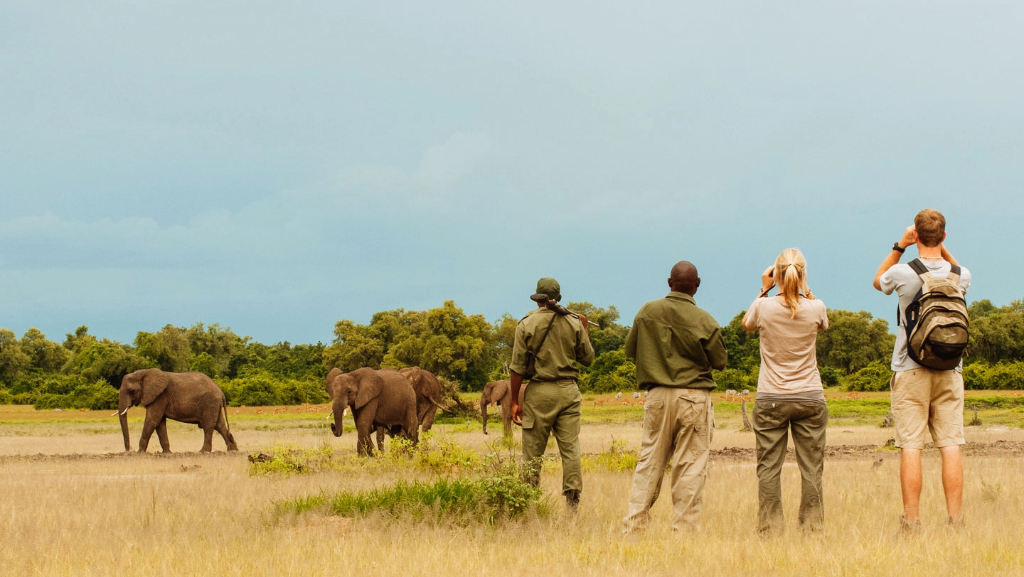
To ensure the safety and well-being of wildlife, it is important to maintain a respectful distance. This helps prevent any disruption to their natural behavior and reduces stress. To do this, always listen and adhere to the instructions given by your safari guide or park rangers regarding safe distances.
Observe and appreciate wildlife from a distance, without causing disturbances. Take the time to enjoy their presence without making loud noises, sudden movements, or trying to feed or touch them.
Limit the time spent observing a particular animal or group to reduce the overall impact. This allows wildlife to carry out their daily activities without unnecessary interruptions.
In order to preserve the fragile ecosystem, it is important to stay on the designated paths and tracks. By doing so, we can prevent damage to the delicate vegetation and avoid disturbing nesting sites or burrows.
Respecting the environment is important, and one way to do this is by not littering. When we leave behind litter or waste, it can harm wildlife. Animals might confuse plastic or other materials that don’t break down easily as food, which can lead to health problems or even cause their death.
Conservation Efforts in Kenya
Kenya’s commitment to conserving its diverse ecosystems and iconic wildlife is crucial. Several notable initiatives and organizations are working tirelessly in wildlife conservation.
The Kenya Wildlife Service (KWS) is responsible for safeguarding and overseeing the nation’s wildlife and national parks. They prioritize actions against poaching, preserve habitats, and promote public awareness through campaigns.
- Community-Based Conservation: Numerous initiatives are driven by local communities to protect wildlife. These initiatives involve community participation in decision-making and offer alternative livelihood options.
- Private and community-owned conservancies play a crucial role in complementing national parks and reserves. They help in expanding protected areas and safeguarding essential habitats for wildlife.
Scientists and researchers work together with conservation organizations to closely observe wildlife populations, analyze behavior patterns, and devise successful conservation strategies.
Responsible Travel Choices
As a responsible traveler, one can actively contribute to wildlife conservation by making conscious choices during their safari experience.
To ensure ethical safaris, it’s important to select operators that prioritize conservation, wildlife welfare, and responsible tourism practices. You can do this by checking for certifications or affiliations with respected conservation organizations. By supporting these operators, you contribute to the promotion of sustainable and responsible tourism.
When selecting lodges and camps, it’s important to choose ones that prioritize environmental initiative. Look for accommodations that have sustainable practices in place. These can include energy-efficient operations, recycling programs, and conservation projects.
To become more knowledgeable and to raise awareness, it is important to educate yourself and others about the local plants, animals, conservation issues, and successful projects. Share this valuable information with other travelers to promote responsible tourism and help protect the environment.
By adopting responsible practices when observing wildlife, actively supporting conservation initiatives, and making conscious decisions while traveling, individuals like yourself have the power to ensure the longevity of Kenya’s extraordinary wildlife and natural beauty, benefiting future generations.
Cultural Etiquette and Respect During a Safari in Kenya
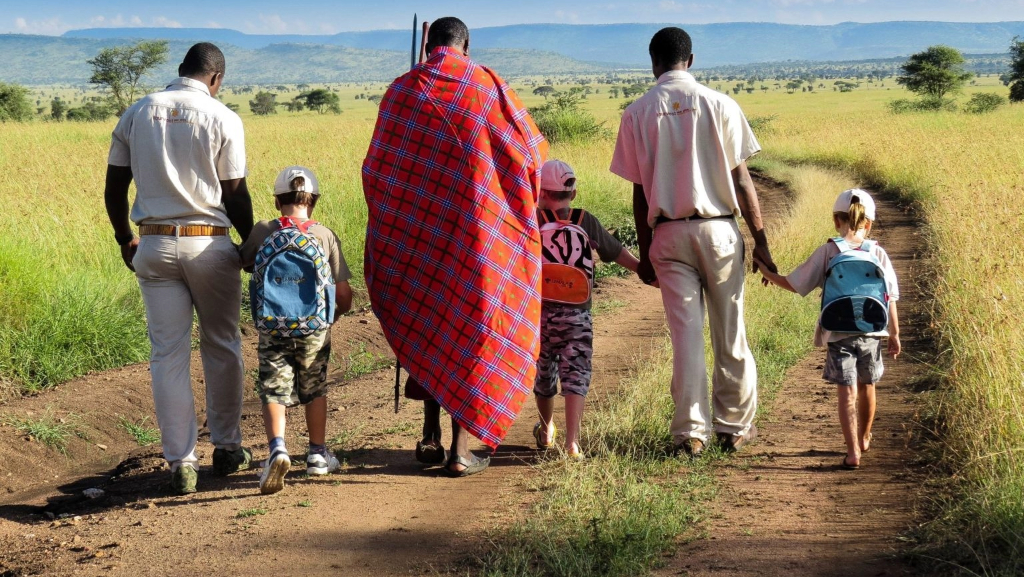
By being mindful of the local way of life, you not only enhance your own experience but also contribute to the preservation and respect of the communities you encounter. Here are some important points to consider:
Learn and Embrace the Local Culture
Take the time to educate yourself about the diverse cultures and traditions of Kenya. Each community has its unique customs, languages, and practices. Show a genuine interest in learning about their way of life, and be open to new experiences.
Dress Appropriately
When people visit local communities or towns, they should remember to dress modestly and respectfully. This means wearing clothing that covers their shoulders and knees, especially in more rural areas. This is particularly important when they enter religious or traditional sites.
Photography and Respect for Privacy
When taking pictures of people, it’s important to ask for permission first, especially if they are locals. Show respect for their privacy and cultural sensitivities. Keep in mind that particular cultures may have specific beliefs or rules about photography, so be thoughtful and seek consent before capturing any images.
Engage with Locals
When you embark on a safari, connecting with the local communities can enhance your experience significantly. Take the time to engage in conversations, inquire about their lives, and be attentive to their stories. By showing respect and genuine interest, you will establish meaningful connections and foster a valuable cultural exchange.
Support Local Communities
When you buy souvenirs or support local businesses, it’s important to prioritize ethically sourced products and services. This way, your contributions directly help the local communities and sustain their livelihoods.
Kenyan Safari Accommodation Options
Kenya provides a variety of accommodation choices to meet different preferences and budgets. Let’s explore the main types of safari accommodations available:
Lodges
Lodges are a favored option for those going on a safari. These permanent structures can be found within or near national parks and reserves. They provide cozy rooms or cottages with conveniences like private bathrooms, electricity, and hot water. Lodges offer a mix of contemporary comforts and an immersive nature encounter. They typically have dining areas, bars, pools, and organized activities.
Tented Camps
Tented camps offer an immersive experience for those who want to get closer to nature. These camps have spacious tents with en-suite bathrooms and comfortable beds. Some camps are even mobile, following wildlife migration patterns, which adds to the excitement and dynamism of the experience.
Luxury Resorts
If you enjoy indulgence and luxury during your safari, Kenya offers a selection of top-tier resorts situated in or near areas abundant with wildlife. These exclusive properties provide opulent accommodations, gourmet dining options, spa amenities, and a variety of personalized services. Choosing to stay at a luxury resort ensures a remarkable and pampered safari experience, with the perfect retreat after thrilling wildlife encounters.
Eco-Lodges
Eco-conscious travelers have a sustainable and comfortable alternative called eco-lodges. These accommodations are designed to minimize their impact on the environment and local communities. They use renewable energy sources and implement eco-friendly practices. By staying at an eco-lodge, you can experience the beauty of nature while promoting responsible tourism.
Bush Camps
For a more exciting adventure, think about staying at bush camps. These camps, which are set up in the heart of the wilderness, offer an immersive and authentic safari experience. With spacious tents, shared facilities, and delicious meals, they provide comfort amidst nature and wildlife. Bush camps are perfect for individuals who want a closer connection with the outdoors.
Remember to research and book your accommodations in advance, especially during peak seasons, to secure the best options that suit your preferences. Each accommodation type has its own charm, so choose the one that aligns with your safari expectations and budget.
Wildlife Photography Tips During a Safari in Kenya
When going on a safari, capturing breathtaking wildlife photographs can bring great satisfaction. Here are a few tips and techniques to ensure you maximize your wildlife photography opportunities.
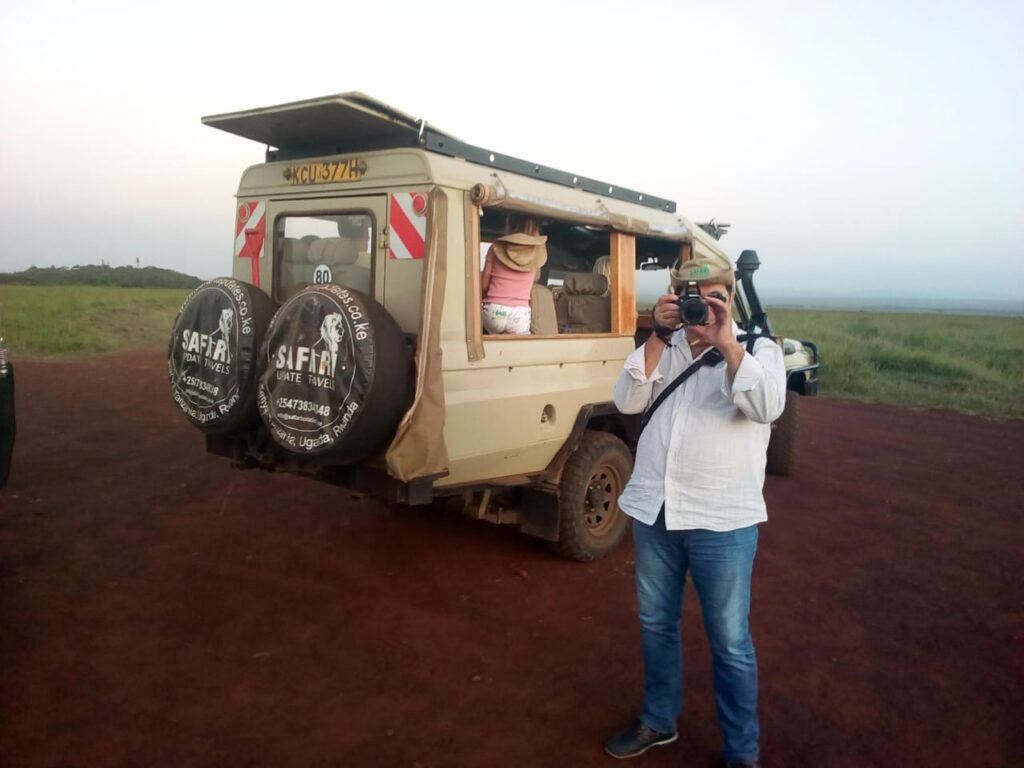
Composition:
To achieve a balanced composition, make use of the rule of thirds. Instead of placing the subject in the center, position it off-center. This technique adds a sense of harmony and equilibrium to your composition.
To enhance your photos, consider framing your subject with natural elements like trees or branches. This technique not only adds depth to your images but also creates a visually pleasing composition.
Camera Settings:
- When photographing fast-moving animals, it’s important to select a faster shutter speed. This will freeze the action and help you capture clear, sharp images.
- When taking photos, consider using a larger aperture, indicated by a smaller f-number. This will result in a shallow depth of field, where the background appears blurred while your subject stands out.
- When it comes to adjusting the ISO settings, it’s important to consider the lighting conditions. Keep in mind that higher ISO settings can introduce digital noise.
Timing and Patience:
Wildlife photography demands patience and perseverance. Capturing enchanting behaviors and interactions necessitates waiting for the perfect moment.
- The golden hour is a special time of day when the light is soft and warm. It happens in the early morning or late afternoon. During this time, the photos you take will have a beautiful, golden tone.
- Action shots: Anticipate the animal’s movements and be ready to capture those exhilarating action shots.
Equipment and Accessories:
- Investing in a high-quality telephoto lens with a long focal length allows you to capture subjects up close without causing any disturbance.
- A sturdy tripod or monopod is essential for stabilizing your camera and reducing camera shake. This helps ensure your photos turn out sharp and clear.
- Lens hood and filters are essential accessories for your lens. They serve two important purposes: protection and enhancement. A lens hood shields your lens from flare, which occurs when bright light enters the lens and causes unwanted reflections or ghosting.
Money Matters and Budgeting
Planning and budgeting for a safari trip to Kenya involves considering various financial aspects, including currency exchange, tipping etiquette, and general budgeting tips. Here’s a breakdown of the key things to keep in mind:
Currency Exchange
When visiting Kenya, it is recommended to have some Kenyan Shillings (KES), the local currency, for smaller transactions and remote areas. Here are a few tips for exchanging currency:
- Exchange rates: Check the latest exchange rates before your trip to ensure you get a fair deal. Exchange your currency at authorized banks or exchange bureaus for the best rates.
- ATMs are easily found in big cities and popular tourist spots. It’s important to note that there may be fees associated with using ATMs, and withdrawal limits can differ.
- Credit cards: Major credit cards, such as Visa and Mastercard, are widely accepted in hotels, lodges, and larger establishments. However, it’s still advisable to carry cash as some places might not accept cards, especially in rural areas.
Tipping Etiquette
In Kenya, tipping is expected and valued as it helps those working in the service industry. Let’s have a look at some basic tipping guidelines:
- Restaurants and Cafes: It’s customary to tip around 10% of the bill in restaurants and cafes if a service charge hasn’t been included.
- When staying at hotels and lodges, it’s customary to tip the staff members who assist you, like porters and housekeepers. A tip of around KES 200-300 per service is appropriate. However, for safari guides and drivers, it’s common to give higher tips. Generally, they receive between KES 500-1000 per day, depending on the level of service they provide.
- When it comes to other service providers like taxi drivers, park rangers, and local guides, it’s always nice to show your appreciation by giving them a small tip. The amount you give should be based on the quality of service you received. Use your judgment and be considerate.
General Budgeting Tips
Kenya provides various accommodation options, catering to different budgets. You can choose from budget-friendly campsites to luxurious lodges. Take some time to research and compare prices to find the one that suits your budget the best.
When traveling in Kenya, there are a few options for transportation. You can choose to take domestic flights or hire a safari vehicle with a driver-guide. It’s important to consider your preferred mode of transport and factor it into your budget.
The budget for meals and drinks should be considered, as prices can differ across regions. It is often more affordable to eat at local eateries or try street food.
Most national parks and reserves in Kenya have entry fees. These fees should be included in your budget. The cost of entry varies depending on the park and whether you are a resident or non-resident.
To make your Kenyan safari experience even more memorable, it’s a good idea to set aside some money for souvenirs and extra activities. You could explore cultural visits or even take a thrilling hot air balloon ride. Adding these special touches will enhance your overall safari adventure.
Planning a safari in Kenya? Let’s take care of everything, while you enjoy your stay!
Kenya’s Safari Experiences and Activities
Let’s explore some of the top activities and experiences you can enjoy on your safari adventure:
Game Drives
Experience the excitement of game drives in Kenya’s famous national parks and reserves. Climb aboard a comfortable safari vehicle and embark on a journey to observe the Big Five (lion, elephant, buffalo, leopard, and rhino) in their natural habitats. From the expansive plains of Masai Mara to the breathtaking landscapes of Amboseli National Park, every game drive offers unforgettable encounters with a wide variety of wildlife.
Guided Walks
Take a guided walk through the wilderness, led by experienced trackers and rangers. This gives you a chance to explore the ecosystem up close, learn about the plants and animals, and see how different species rely on each other. Walking safaris offer a personal and immersive experience of the African wilderness.
Cultural Interactions
Immerse yourself in the vibrant cultural experiences of Kenya. Explore the traditions and heritage of the local communities through meaningful interactions. Take a trip to Maasai villages and delve into their ancient way of life. Witness the captivating tribal dances that showcase the richness of their culture. You’ll also have the opportunity to support local artisans by purchasing traditional handicrafts directly from them. These cultural exchanges offer a unique and deep understanding of Kenya’s diverse ethnic groups and their customs.
Hot Air Balloon Safaris
Indulge in a remarkable hot air balloon ride over the vast savannahs during your safari adventure in Kenya. As you peacefully float above the plains, you’ll capture the awe-inspiring beauty of the sunrise or sunset and witness the extraordinary wildlife below. This enchanting experience offers a fresh viewpoint of the landscape and opens up incredible opportunities for photography.
Bird Watching
Kenya, a beloved destination for bird enthusiasts, is home to an impressive 1,100 bird species. From the vibrant lilac-breasted roller to the magnificent African fish eagle, there are countless feathered wonders to discover. Accompanied by a knowledgeable guide, you can experience the thrill of spotting and identifying both resident and migratory birds in their natural habitats.
Bush Dinners and Sundowners
Experience the ultimate dining adventure in the heart of the wilderness. Treat yourself to a delicious bush dinner beneath the starry African sky, surrounded by the melodies of nature. Don’t forget to relish sundowner cocktails with breathtaking views of the vibrant horizon.
Frequently Asked Questions (FAQs)
Q: Are vaccinations required for a safari in Kenya?
Yes, vaccinations are recommended before traveling to Kenya for a safari. It’s important to consult with a doctor or travel health professional to determine which vaccinations you need based on your health conditions and the areas you plan to visit. The commonly recommended vaccinations for Kenya are yellow fever, typhoid, hepatitis A and B, and tetanus. Malaria prevention is also highly recommended.
Q: What wildlife can be seen during a Kenyan safari?
A: You can expect to see the iconic “Big Five” animals, which include the lion, leopard, elephant, rhinoceros, and buffalo. Additionally, Kenya is home to a wide variety of other fascinating wildlife, such as giraffes, zebras, cheetahs, hyenas, hippos, and a plethora of bird species. The famous Maasai Mara National Reserve, Amboseli National Park, and Tsavo National Park are popular destinations for wildlife spotting in Kenya.
Q: Are there age restrictions for safari tours in Kenya?
While some reserves may have age requirements for specific activities like hot air balloon rides or walking safaris, game drives and regular safaris generally don’t have strict age limits. To be sure, it is advisable to contact the tour operator you choose and inquire about any age restrictions or recommendations before making your safari booking.



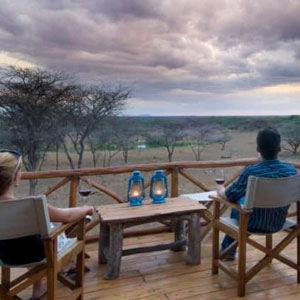
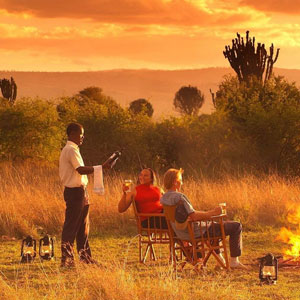
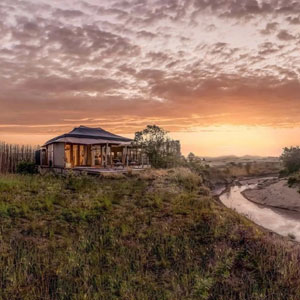
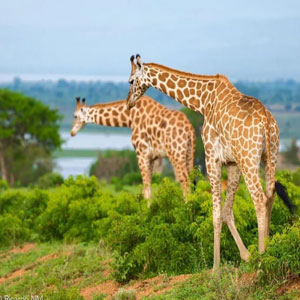
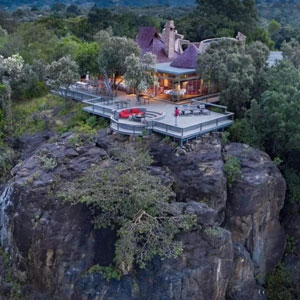













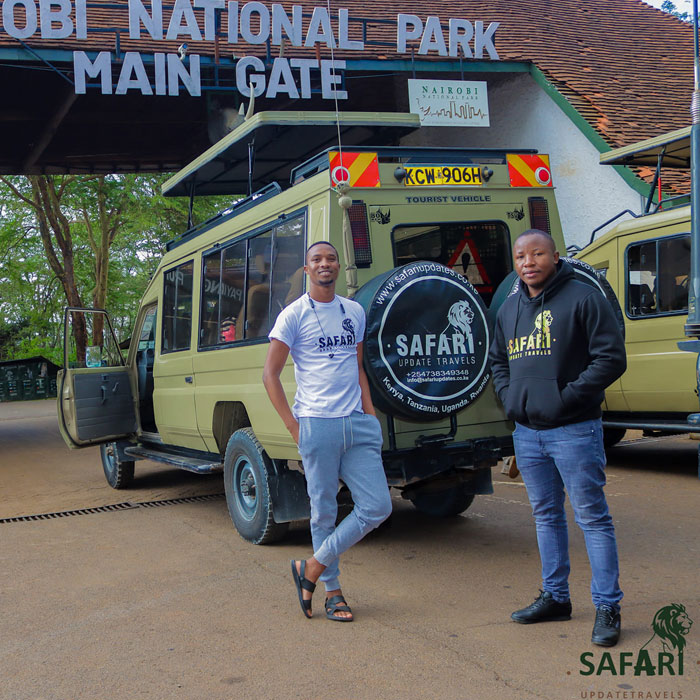
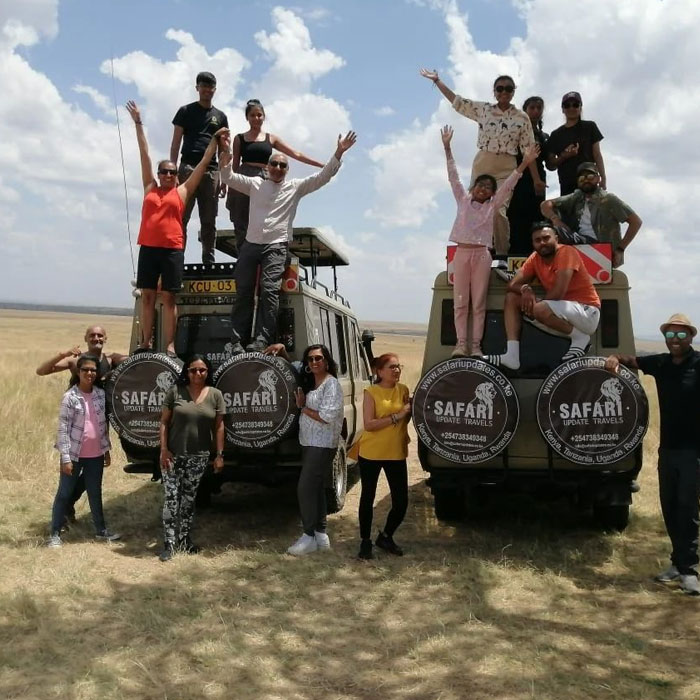
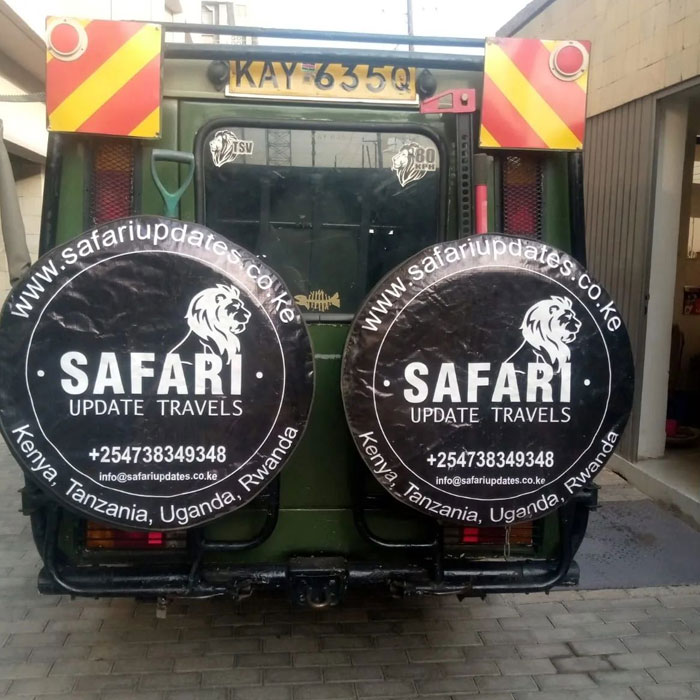
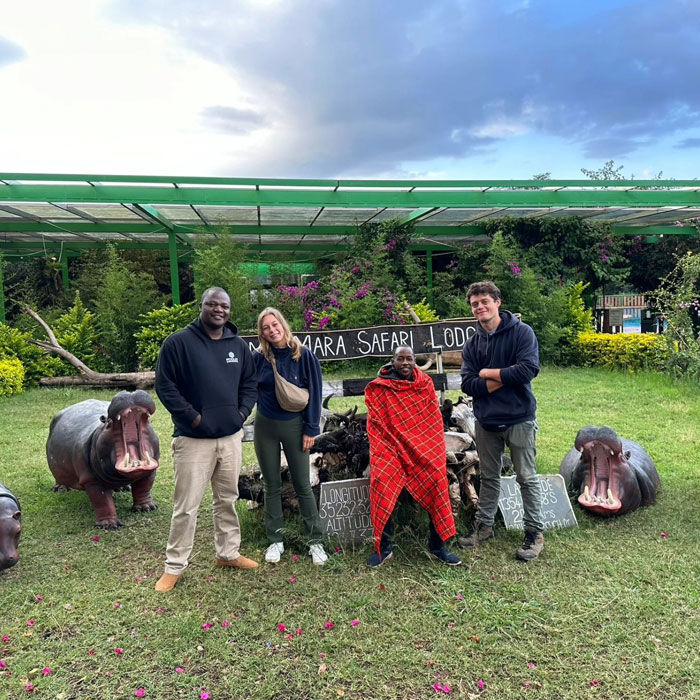
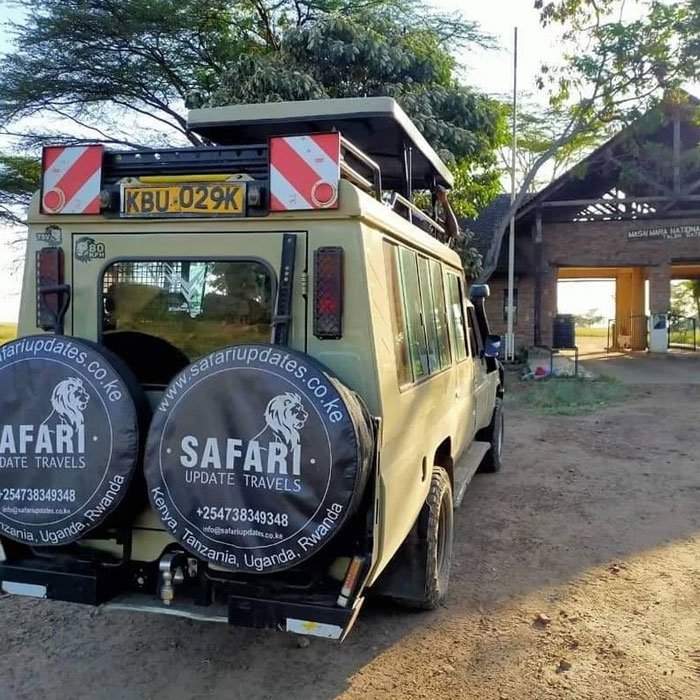
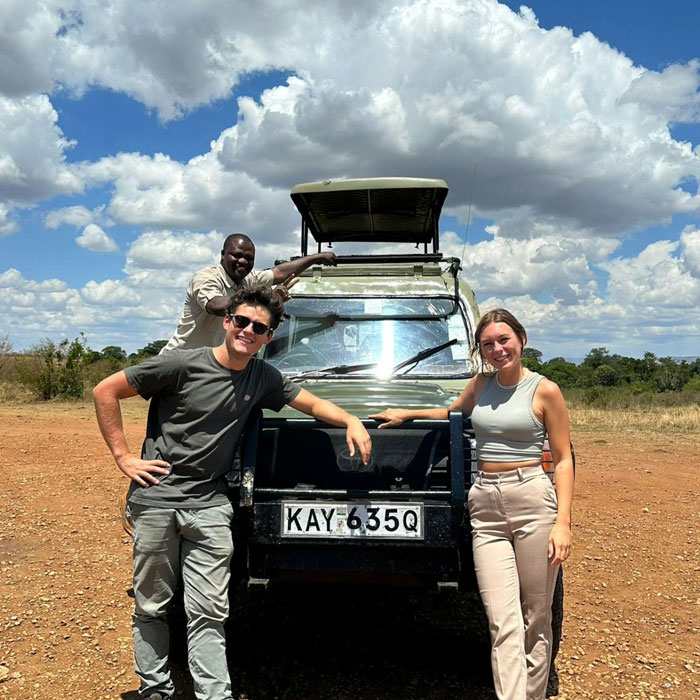
Showing 0 comments